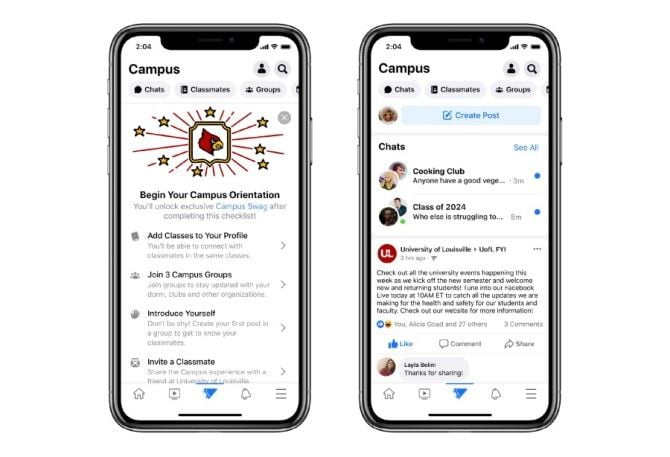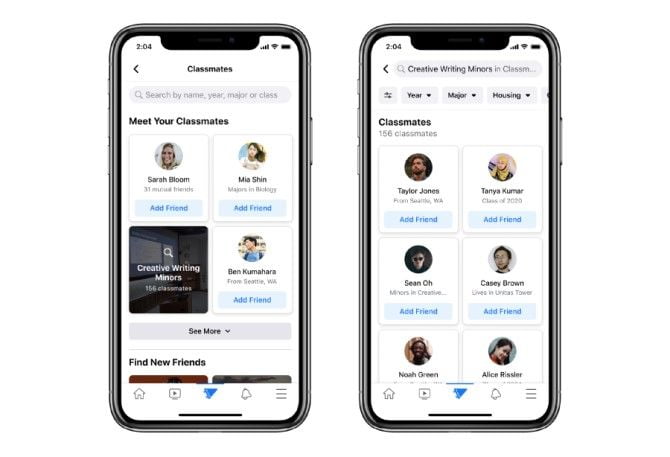Facebook is experimenting a new space for college students called Facebook Campus. This dedicated section will appear on the Facebook app, making it easier for students to connect. Facebook was originally built as a college-only social network, and the platform is going back to its roots.
Student will be able to use Facebook Campus to communicate with colleagues, join clubs, find study groups, and schedule campus meetings. That said, adding a student-only section could make Facebook one of the most useful apps for college students.
Facebook Campus accounts are separate from normal Facebook accounts. To be able to use this feature students simply enter their graduation year and EDU email address.

After that, students can choose what other information they want to disclose. Facebook Campus allows students to add their hometown, class schedule, and course, but all of this information is optional. Once the registration process is complete, students can start finding groups and events associated with their school.
- Facebook tests Instagram Stories to be viewed directly on Facebook
- How to create a survey using Facebook Messenger?
- How to get a virtual phone number for a second WhatsApp?
Anything published on Facebook Campus remains on Campus and is not published on other parts of Facebook. It is also not shared with students from other colleges; only students who belong to a particular college can access the Campus space associated with that school.
Campus also includes a college directory. This allows students to search for classmates by major, class and year. And when students want to chat, they can feel free to create chat rooms for dorms, study groups, and on-campus clubs as well.

So far, Facebook Campus is only available in a select number of colleges in the United States. These schools include Brown University, Duke University, Johns Hopkins University, Northwestern University, and more. You can find the full list in this blog post: About Facebook.
Many college students are already registering to Facebook to chat with colleagues and form study groups, but it’s clear that Facebook wants to expand this audience. On the other hand, Facebook can take advantage of the extra information students tend to divulge, which is why it’s always important to be careful about what you share online.





